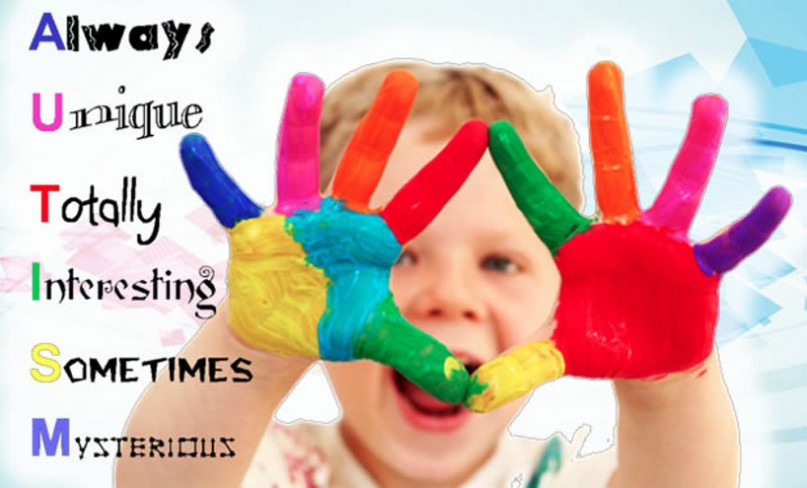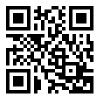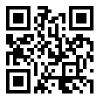
So,what is Autism?
“Autism, or autism spectrum disorder, refers to a range of conditions characterized by challenges with social interaction, communication, restricted interests and repetitive behaviors, as well as by unique strengths and differences. Every single child with Autism does not share the same set of features and challenges with another autistic child. They are ‘unique’. The term ‘spectrum’ reflects the wide variation in challenges and strengths possessed by each person with autism. “
So,what should you know?
Most recent studies identified that Autism is caused by combination of genetic susceptibility and environmental triggers. Autism can be identified as early as 18 months of age. By monitoring the child’s developmental pattern in the early years will help in identifying the disorder at the earliest. Early intervention plays a key role in treating children with Autism Spectrum Disorders (ASD).
As mentioned above, one of the domains that children with autism spectrum disorders have challenges in is with Communication. To explain in brief, Communication is the process of exchanging information, feelings and thoughts between two or many people which involves listening-encoding-decoding-responding.
Common challenges in Communication
- Atypical language developmental pattern
- Responding to name call, instructions, and conversations
- Express their needs, feelings and interests verbally
- Difficulty in learning speech and language from the environment
- Using body language, signs and gestures to communicate
The blog attempts to address the above challenges by providing tips which could improve the effectiveness of the autism treatment, resulting in faster improvement in the kids. The following factors needs to be considered while providing intervention of communication and other domains.
1. Sensory processing
Studies reveal that 75% of children with ASD have sensory processing disorder. This difficulty can present in any of these senses, auditory, smell, touch, balance, taste. Identifying these sensory issues before initiating intervention helps in designing child specific IEP’s (Individualized education Program). For example, Autistic children perceive speech at the same intensity as environmental noises, it’s very difficult to process the auditory input. Hence,they don’t respond immediately. Children can be over- sensitive or under-sensitive to the noises. Children who are over-sensitive might have meltdowns or tantrums when heard an aversive sound.
Tips for auditory sensitivity related issues:Make sure that the place you choose for providing intervention to be a noise free zone. Use picture or textual cards to help process information through visual mode presented along with auditory stimuli. Make sure that the instruction placed are clear, loud and consistent.
Speech Pathologists need to screen for the presence of sensory issues in a direct interview and information from Occupational Therapist to plan the intervention process accordingly.
2. Visual perception
In an article by Rachel A Coulter from Nova southeastern University explained that Visual symptoms highly associated with ASD include photo sensitivity, hyper and hypo sensitivity, color perception processing and differences in processing central and peripheral stimuli. A study revealed that individuals with autism responded to central stimuli than to stimuli left or right of central fixation. Clinician should be aware of this difference while presenting items. Research suggests that children with Autism tend to focus on the area around the mouth rather than on the socially informative eye area and on static objects rather than (moving) people. Hence, individuals with ASD show a weaker tendency to initiate and maintain eye to eye contact with people and give less attention to faces.
Tips for visual perception related deficits: There are various optometric interventions such as using yoked prism and non-optometric interventions such as Applied behavior analysis are available to treat visuo-spatial problems. For eye contact, sit at a level where your eye level meets that of child’s. Keep the objects of interest next to your eyes such that the child looks at the object and then move the object across your eye to get eye contact.
3. Teaching environment
A well-enabled environment considering child’s strengths and limitations helps in yielding better learning outcomes. Children with Autism will have challenges in attention and executive functioning. In such case the setting that the child is learning from needs to be organized in a way that there are less distractions and helps the child to attend stimuli that is presented. Accessibility to materials easily also impacts learning outcomes. Studies found that levels of spontaneous communication were directly related to the nature of wider communication environment provided for them not to the degree of child’s impairment. Introducing key changes to the communication environment could sometimes immediately and significantly promote greater spontaneous communication.
Tips for creating an enabling teaching environment:TEACHH is one such program designed to teach in a way that makes most of their strengths and works around their weaknesses. Structured teaching is central to the program’s approach. The program uses schedules to make daily life predictable. The learning environment is physically organized with specific areas for different types of activities. Minimal speech approach and proximal communication are other approaches that helps in enabling the teaching environment.
4. Verbal output
Autism manifests in two ways i.e. verbal and non-verbal. Verbal autistic children will be able to sing songs, repeat dialogues from their favorite cartoon or T.V shows with appropriate clarity but they won’t be able to use this echolalia for communicating their needs. On the other side, non-verbal autistic children will have limited or no speech. Research also explains that 65% of children with autism will present with ‘’Apraxia of speech’’, a motor speech disorder with difficulty in coordinating oral structures to produce speech sounds. Clinician should derive individualized education program based on the child’s verbal ability.
Tips based on verbal ability of the child: For verbal kids and kids with apraxia of speech practice requesting, spontaneous labelling, and filling in rhymes to make appropriate use of their verbal skills (personal data collection). For non-verbal kids, use PECS (Picture exchange communication system), sign language to build communicative intent.
5. Ability to imitate
Imitation is one of the most important means of learning for typically developing children. This mode of learning is difficult for children with autism because it requires the child to pay attention to another person and to what that person is doing. The hardest thing about imitation tasks is learning the process of imitation and that imitation can be used to learn new things. Some infants imitate facial movements instinctively while they are learning about people’s faces. The first type of intentional imitation that children learn, however, is the imitation of simple actions using objects. Simple object imitation involves actions for which the object is intended and objects which have qualities that attract your child’s attention. Shaking a rattle is a good example.
Tips for enhancing imitation skills: Teach imitation skills both in structured and unstructured ways (rhymes, play). Start with gross motor imitation skills, followed by object imitation, fine-motor, oral and verbal imitations. Show the child the action and then provide full prompt to the child to imitate. Reduce the amount of prompt given as you feel that the child is learning to imitate independently.
The blog attempts to provide high level tips which are frequent deterrents and commonly missed ones, based on my experience in the field. Intervention should be tailored considering child’s strengths and weakness. A huge disclaimer is that there could be numerous other tips provided by other experts in the field which should be considered by the audience and work towards speedy recovery of the kids.
For booking appointments, call us @ +91-80-49261111, +91-80-67458111 (or)
Download RxDx Smart Healthcare App Now!!!




